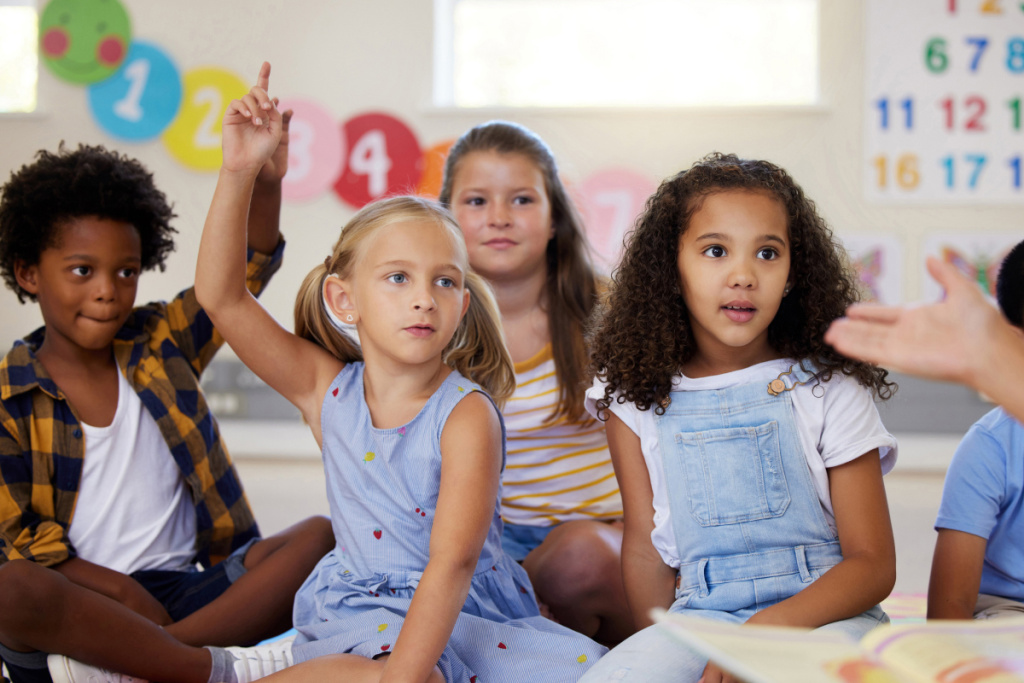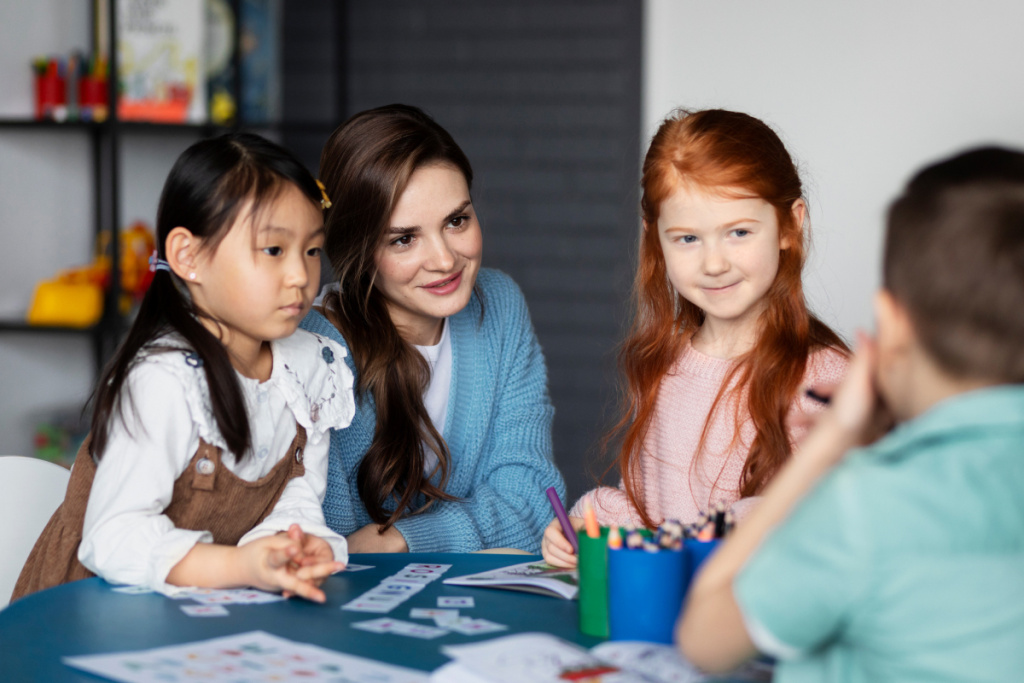Established in 1968, the International Baccalaureate (IB) programme was created with the support and partnership of UNESCO. It encompasses education at all levels, including:
- The Primary Years Programme (PYP) which is offered to children between the ages of 3 and 12.
- The Middle Years Programme (MYP) designed for children aged 11 to 16.
- The Diploma Programme (DP) tailored for students aged 16 to 19.
In this article, we will provide more insights into the Primary Years Programme (PYP) of the International Baccalaureate.

Objectives of the ib pyp programme
The IB Primary Years Programme aims to provide a comprehensive education to children aged 3 to 12, focusing on both academic and social development. The programme employs problem-based learning strategies alongside individualised instruction. It incorporates the most effective teaching methods that have been refined and enhanced through ongoing educational research and the experiences of esteemed international schools.
The PYP's developers contend that this cutting-edge educational strategy is progressive and gives kids the tools they need to meet the difficulties posed by our rapidly changing global environment.
Programme structure
The IB Primary Years Programme elementary curriculum comprises six core subject areas:
- language
- social studies
- mathematics
- arts
- science
- personal, social and physical education

Pupils also study 6 important transdisciplinary themes:
- Who we are: human personality, our mental, physical, spiritual and social health, interpersonal relationships, rights, responsibilities, beliefs, values and culture
- Where we are in place and time: orientation, home, travel, resettlement, discovery, research
- How we express ourselves: understanding and expressing ideas, feelings, values, creativity
- How the world works: laws of nature, human influence on the surrounding world
- How we organise ourselves: society, communities, organisations
- Sharing the planet: the distribution of territories and resources, international relations, peacekeeping, conflict resolution
Children broaden their knowledge, learn to define and comprehend meanings in all subject areas, between them and beyond, by studying these issues of global significance. It is encouraged for students to take the initiative and responsibility for their own learning throughout class. Since there seems to be a discrepancy between the new requirement and the students' current level of knowledge, skill, and competence, the teacher expresses worry to the class. PYP students attempt to address the issue while attempting to close these gaps.
Features of ib pyp programme
The International Baccalaureate Primary Years Programme relies on the notion that students should take an active role in their own education and are accountable for it. Enhancing their own effectiveness is thought to be crucial. Self-sufficient people are enthusiastic about their own education.
Developing connections between students and between students and teachers is given special consideration in order to establish a healthy learning environment that both teaches and learns.

Benefits of the ib primary years programme
The International Baccalaureate Primary Years Programme (PYP) is a globally recognized educational framework that offers several benefits to students. This article will explore the advantages of the IB PYP based on its global recognition, inquiry-based learning, holistic development, international-mindedness, academic excellence, transferability, interdisciplinary approach, and action orientation.
Global Recognition
One of the most significant benefits of the IB PYP is its international recognition. This programme is acknowledged and respected by educational institutions worldwide. Students who complete the IB early years program often find it easier to transition to different schools or countries, as their education is already aligned with international standards. This recognition also enhances students' future opportunities for higher education or employment.
Inquiry-Based Learning
The IB PYP uses an inquiry-based methodology to promote active learning and curiosity. Students are encouraged to research, enquire about, and examine subjects that interest them. This approach encourages critical thinking, problem-solving abilities, and creativity while involving students in their learning process. Students develop a passion for learning and a sense of curiosity that lasts a lifetime.
Holistic Development
Unlike traditional education systems that solely focus on academic achievements, the IB PYP emphasises holistic development. The programme acknowledges the importance of nurturing a child's physical, emotional, and social well-being, ensuring students develop into well-rounded individuals. By addressing all aspects of a child's development, the IB PYP promotes balanced growth and academic success.
International-Mindedness
Preparing students for global citizenship is another advantage of the IB PYP. The programme instils a sense of international-mindedness, as students gain exposure to different cultures, perspectives, and world issues. Through projects, collaborations, and international partnerships, students develop empathy, tolerance, and open-mindedness. This prepares them to become responsible global citizens who can effectively contribute to a diverse and interconnected world.

Academic Excellence
The International Baccalaureate PYP is renowned for its focus on academic excellence. The programme implements a rigorous IB elementary curriculum that maintains high standards. Students acquire a deep understanding of subjects, develop critical and analytical thinking skills, and become independent learners. The emphasis on research, inquiry, and conceptual understanding enables students to excel academically and lays a strong foundation for further education.
Transferability
A significant advantage of the IB PYP is the transferability of skills and knowledge. As the programme is internationally recognized, students can seamlessly transition between schools or even countries without any disruption in their education. The IB PYP's curriculum and assessment methods ensure that students' learning remains consistent regardless of the geographical location.
Interdisciplinary Approach
The IB PYP applies an interdisciplinary approach, connecting various subjects and skills. This method breaks down the compartmentalization of knowledge, making learning more interconnected and relevant. Students understand the relationship between various subjects, enhancing their understanding and application of concepts. The interdisciplinary approach also allows students to develop a broader perspective on complex issues, enabling them to think critically and make connections between different areas of knowledge.
Action Orientation
The IB PYP lays a lot of emphasis on learning that is action-oriented. It is recommended for students to use their knowledge and abilities in practical settings. Through this method, students are able to recognise the relevance of what they have learned in real-world situations and are given the freedom to act independently and positively. The IB PYP helps students develop a sense of agency and responsibility, which gives them useful life skills that go beyond the classroom.

Is ib pyp right for my child?
Every parent must make the decision regarding the best educational elementary curriculum for their child. Determining which programme would best fulfil your child's needs and enable them to flourish academically and psychologically can be overwhelming given the abundance of alternatives available. Let's explore the benefits of the IB PYP and understand if it is the right fit for your child.
Learning Style
The IB PYP is intended to promote an inquiry-based learning environment where students are supported to investigate, ask, and understand new material. As they actively engage in their studying process, this method supports children' development of critical thinking, research abilities, and a love of learning.
Academic Interests
One of the greatest benefits of theInternational Baccalaureate Primary Years Programme is its flexibility in catering to diverse academic interests. The IB PYP curriculum allows students to explore a broad range of subjects, including language and literature, mathematics, science, social studies, the arts, and physical education. This not only provides a well-rounded education for all students but also enables them to develop their talents and passions.
Global Perspective
In today's interconnected world, it is crucial for children to develop a global perspective. The IB PYP emphasises the importance of international-mindedness, promoting an understanding and respect for different cultures, languages, and points of views. Children who grow up with this support become responsible, conscientious, and prepared to make a positive difference in the world.

Parental Involvement
The IB PYP acknowledges the crucial contribution that parents make to their children's education. Parental involvement is valued and encouraged, whether it involves being actively involved in school events, giving back to the community, or promoting learning at home. This collaboration between parents and teachers strengthens the child's overall educational experience and promotes a sense of community.
Mobility
For families who frequently relocate due to work or other reasons, the IB PYP offers significant advantages. The programme follows a globally recognized curriculum, allowing for a smooth transition between IB schools in different countries. This consistency ensures that children do not face significant disruptions in their education, and they can seamlessly continue their learning journey no matter where they go.
Special Needs
The IB PYP is designed to be inclusive and adaptable to diverse learning needs. It recognizes the importance of individualised support for students with special needs, providing a framework that helps educators create personalised learning plans. This ensures that all children, regardless of their abilities, receive the support they need to reach their full potential.
Financial Considerations
Financial considerations are essential for many families when considering educational programmes. While the IB PYP may involve additional costs, such as registration fees and resources, the value it offers in terms of holistic education, international recognition, and preparing students for the future makes it a worthwhile investment.
Ib at british international school moscow
At BISM, primary classes are taught according to the national educational programmes of England. We strive to give our students a classic English education, as we are a member of the Council of British International Schools (COBIS) and teach to its high standards. But we approve and appreciate the International Baccalaureate programme and offer IB DP to our graduating students at School 3. This diploma makes it possible to enter almost any university in the world.
Its inquiry-based learning style, flexibility in catering to diverse academic interests, emphasis on international-mindedness, recognition of parental involvement, adaptability for special needs, and advantages for mobile families make it a programme worth considering. Ultimately, the decision of whether the IB early years programme (PYP) is right for your child depends on their individual needs and interests.

More to read:
When is the best time to start learning english?What is an international school
International Baccalaureate